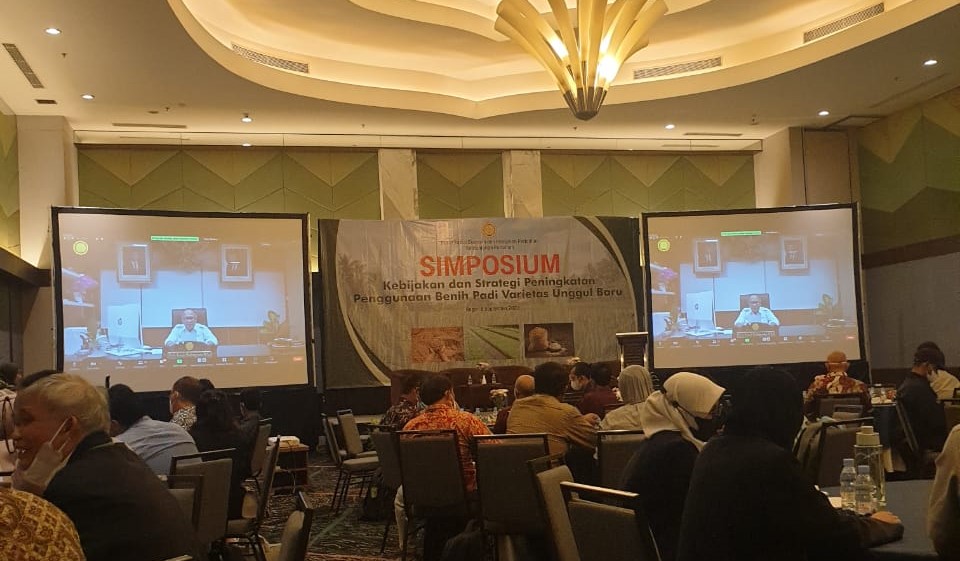APPERTANI and PSEKP Cooperation in PRISMA Activities Enters the Final Stage

APPERTANI’s collaboration with the Center for Socio-Economic and Agricultural Policy (PSEKP) in Promoting Rural Incomes through Support for Markets in Agriculture (PRISMA) has entered the final stage of discussion and is in the process of compiling the final report. The research collaboration was carried out to formulate a Strategy for Increasing the Use of New Superior Varieties of Rice Seeds (VUB) in Indonesia which has been going on since April 2022 and ended at the end of August 2022.
The purpose of the collaboration is to increase the use of VUB rice seeds and to increase people’s income, especially farmers in rural areas. Rice production begins with the availability of VUB quality seeds as a result of the breeding process and the release of varieties according to market demand as part of the agribusiness subsystem to produce VUB quality seeds with the principles of genetic and agribusiness superiority.
The study of strategies and policies to increase the use of VUB Rice in Indonesia has been carried out through limited discussions at PSEKP, which was followed by the implementation of special group discussion forums (FGD) in 3 research locations (2 districts in West Java and 1 district in East Java) where the research was conducted and studies at the 3 locations and a symposium with various stakeholders.
Several findings in the release of promising lines into VUB did not involve seed producers so that most of those released were adaptive varieties, high productivity but difficult to sell, reducing the interest of seed producers to produce them. The policy of providing seed assistance targets adaptive varieties of specific agroecosystem stresses and high productivity to increase the average national productivity and improve community nutrition, not paying attention to market preferences so that the adoption is not sustainable.
APPERTANI recommends releasing the expected adaptive, high productivity lines according to market preferences, with several strategies that can be applied; 1) Separating the breeding process to produce the expected line (invention) with the release of varieties to facilitate the downstreaming of the source seed (commercialization). 2) The process of releasing varieties does not only involve breeders, but also, superior character testers and seed producers. 3.) Deepening of preferences with seed producers, farmers, millers, households.
The results of these discussions and studies are expected to be able to provide changes in increasing the use of new high-yielding varieties of rice in Indonesia, which will not only impact on the seeds themselves but also for farmers in Indonesia and rice agribusiness in the future.

